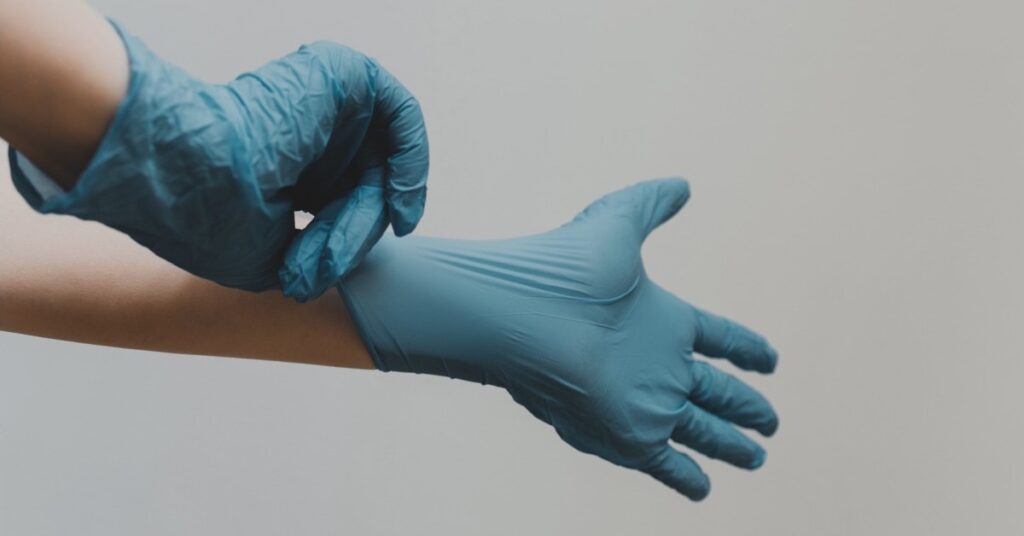
The Pros and Cons of Becoming a Dermatology Physician Assistant (Hint: Save Skin for a Living)
As a dermatology PA, you'll perform many of the same [...]

One of the most appealing aspects of nursing careers is the seemingly limitless job opportunities they offer. According to the Bureau of Labor Statistics (BLS), the registered nursing job market is projected to grow 12 percent through 2028. The nurse practitioner field is expected to grow by an astounding 26 percent over the same period.
According to the BLS, there are more than 3 million nurses employed nationwide. That number continues to increase thanks to the care needs of America’s aging population, new emerging specialties, and increasing rates of chronic disease.
While most nurses currently work in hospital settings, they also have plenty of alternative career paths to choose from. A career spent in scrubs, scrambling from patient to patient in a hospital wing, simply may not align with many nurses’ passions and goals. Fortunately, recent graduates, career switchers, and industry veterans alike have many options outside of the hospital.
If you see yourself in the nursing industry or aspire to advance your nursing career, chances are there’s a field that meets your interests and skills. Just as patients evaluate various healthcare settings for medical treatment, nurses should do the same—but with slightly different intentions: to find the environment that best fits their needs and career goals.
Typically known as clinical nurse educators, these professionals are registered nurses who have accrued significant experience in the field before teaching.
At a high level, they’re responsible for ensuring that nursing students—and, sometimes, inexperienced nurses—have accurate and up-to-date information, skills, and attitudes needed to provide effective care.
While some in this role teach in hospital-based nursing programs, others are employed by universities and technical schools. Those who focus on helping prepare nursing students to enter the workforce tend to have duties that are more academically oriented. These include day-to-day tasks such as developing curricula, teaching and advising students, assessing educational outcomes, and conducting academic research.
Schools nurses take care of the physical and mental wellbeing of students on a school campus. According to the National Association of School Nurses (NASN), their responsibilities include performing routine screenings on students as well as providing as-needed emergency and non-emergency care. Their work involves way more than band-aids and ice packs.
On a given day, school nurses might assess ill or injured students, instruct first graders on hygiene, or help students with chronic issues like asthma or allergies in administering necessary medications or treatments. Some may also help assess and treat students with mental health issues like a mood or anxiety disorder.
Most states require school nurses to meet special qualifications—in some states, they must earn certification—in order to specialize so they can work with students in elementary, middle, or high school. They work in nearly every kind of educational facility, including public schools, private schools, vocational and alternative schools, and even in international schools and on U.S. military bases.
Cruise ship nurses care for patients in a variety of ways, whether practicing first aid and treating seasickness or tending to more critical issues like cardiac arrest and serious injuries. In critical situations, their job is to get a patient stable enough to transfer them to the nearest facility on land, sometimes by helicopter or small boat.
While most major cruise lines are well-fitted with labs, X-ray equipment, and even small pharmacies, cruise ship nurses don’t have the support of a large staff of technicians, aides, and other professionals you’d find in a hospital. You’ll commonly find them working as part of a small medical team of other nurses and physicians.
Cruise ship nurses are generally required to work a six-month contract followed by two months off. Shifts are similar to what hospital nurses might expect; they usually last 12 hours, with rotating days off and on-call days.
Healthcare is constantly advancing as current medications and treatments are improved and new medications and treatments are developed.
Research nurses are a linchpin of this progress. From studying the effects of an experimental procedure to characterizing the natural history of a disease, nurse researchers collaborate with scientists in fields such as pharmacy, nutrition, and engineering to better address complex questions and problems.
They work in a variety of settings, including healthcare facilities, universities, research organizations, and laboratories. Because most research studies are funded through grant money, they often move between projects as funded studies become available. Whether in clinical or academic settings, nurse researchers design and implement scientific studies and use their findings to improve health, healthcare services, and healthcare outcomes.
While most nurses care for one patient at a time, public health nurses care for entire populations. It’s a lofty undertaking—and one that covers a lot of ground to improve the health and wellbeing of communities they live in and serve.
Many public health nurses work in government offices, where they typically research potential health epidemics and how to mitigate them. Others work at the federal level, examining health trends to develop short- and long-term programs focused on nationwide health promotion.
Some public health nurses work in mobile units, providing immunizations, screening tests, and treatment to people who lack access to healthcare. Within community programs, they’ll assist people dealing with violence, pregnancy, or substance abuse. In addition, they often work behind-the-scenes planning activities, managing budgets, and evaluating the effectiveness of public health programs.
Nurses have worked to influence healthcare laws and policies since Florence Nightingale lobbied the British Parliament to educate and train nurses to serve in public workhouses. These days, nurses working in the health policy arena play a more crucial role than ever in developing and implementing the framework in which healthcare and public health systems operate.
Health policy nurses work to review and revise healthcare laws, policies, and regulations. Using their nursing expertise, they advocate for change where needed and make recommendations on how to streamline healthcare practice and improve patient safety and outcomes.
Health policy nurses are employed by healthcare research firms, work in legislative and regulatory offices at the local, state, and federal level, and even hold elective or appointed office. Some work at health maintenance organizations, advocacy organizations, healthcare companies, or provider associations. Some may function in consultant roles, in which they offer their expertise to healthcare providers, facilities, and other organizations.
For nurses who hope to go beyond the typical duties of their industry, forensic nursing may be the ideal profession. This job combines hefty nursing expertise with the ins and outs of a career in the judicial system, resulting in a specialization that links the medical and legal worlds.
Much of the work of forensic nurses revolves around evaluating and caring for victims of assault, domestic abuse, child and elder abuse, neglect, and sexual crimes. During a shift, they may:
At other times, they may be called upon to present medical evidence as in a courtroom setting.
While forensic nurses usually work in hospitals and are often on call for local law enforcement, many are employed by non-profit organizations that serve victims of crime by providing free or low-cost medical care.
As the field expands, so do professional opportunities outside of the hospital setting, covering jobs at psychiatric offices, medical examiner offices, correctional facilities, coroners’ offices, and community programs that support victims of abuse and other types of violence.
Like forensic nursing, legal nurse consulting is a specialization that brings clinical experience, medical education, and scientific background to the legal arena. Many in the legal system aren’t familiar with healthcare terms and procedures, so they need guidance from an expert in the field. That’s where legal nurse consultants come into play.
From medical malpractice and insurance fraud cases to personal injury cases and worker’s compensation, legal nurse consultants provide invaluable consultation and expertise to attorneys litigating medical issues. They may be tasked to review and interpret medical records or analyze a case to see whether it is worth pursuing.
They may also help prepare for trial by interviewing other medical professionals, talking to witnesses, and compiling the most relevant medical records. In some cases, legal nurse consultants are called upon to provide expert testimony during trials by explaining medical terms to the judge and jury and presenting the medical facts of the case.
In addition to working for law firms or as contracted consultants, legal nurse consultants also practice on behalf of governmental agencies, healthcare facilities, insurance companies, and patient safety organizations.
Occupational health nursing is a blend of healthcare expertise, compassion, and business, resulting in a specialization that works to ensure the wellbeing and safety of workers nationwide. Occupational health nursing tends to focus on settings in which injury may be more likely due to the presence of toxins, machinery, or heavy equipment.
In general, occupational health nurses deliver health and safety programs and services that help prevent illness, injury, and environmental hazards inside organizations ranging from government facilities and military bases to factories and other industrial and community-based settings.
Their responsibilities include:
In some cases, their patient care services may extend to the families of employees.
The ultimate goal of these professionals is to keep their organization’s employees as healthy as possible. By doing so, they help maximize employee productivity and overall health and safety to reduce disability claims, on-the-job injury claims, and absenteeism.
Questions or feedback? Email editor@noodle.com

As a dermatology PA, you'll perform many of the same [...]

A nurse midwife guides patients through pregnancy, right up to [...]
Categorized as: Medicine, Nursing & Healthcare